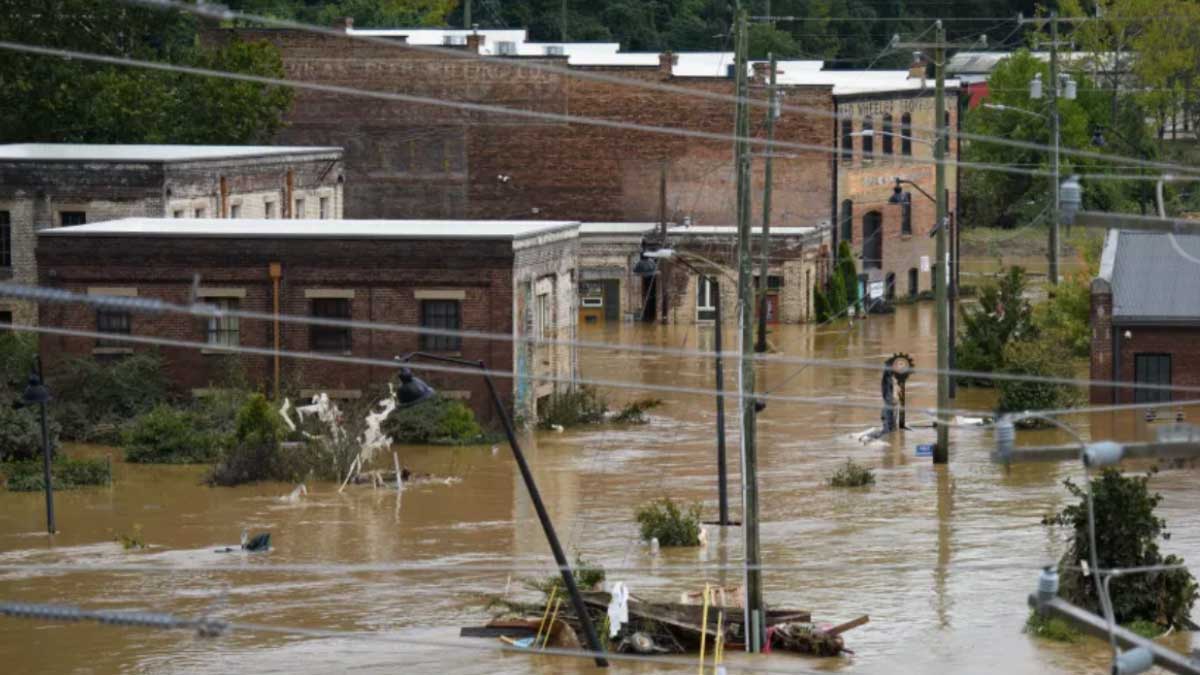- Home
- Billionaires
- Investing Newsletters
- 193CC 1000
- Article Layout 2
- Article Layout 3
- Article Layout 4
- Article Layout 5
- Article Layout 6
- Article Layout 7
- Article Layout 8
- Article Layout 9
- Article Layout 10
- Article Layout 11
- Article Layout 12
- Article Layout 13
- Article Layout 14
- Article Sidebar
- Post Format
- pages
- Archive Layouts
- Post Gallery
- Post Video Background
- Post Review
- Sponsored Post
- Leadership
- Business
- Money
- Small Business
- Innovation
- Shop
Recent Posts
Hurricane Helene: Death Toll Nears 100, Thousands Missing

Hurricane Helene has wreaked havoc across several states, leading to a rising death toll that has now approached one hundred, as catastrophic flooding and widespread destruction continue to unfold. As of Sunday night, authorities reported 91 fatalities across six states, and that number is expected to climb as rescue and recovery efforts progress. Hundreds of individuals remain unaccounted for, raising concerns among families and emergency personnel alike.
North Carolina has been particularly hard-hit, with at least 30 reported deaths in Buncombe County alone. The city of Asheville, known for its picturesque mountain scenery, has become isolated due to historic flooding that has made many roads impassable. Governor Roy Cooper characterized the situation as an “unprecedented tragedy” during a press conference on Sunday. He emphasized the dire conditions that have left many people stranded, noting that floods and landslides have rendered critical transportation routes unusable.
In addition to the tragedies in North Carolina, Georgia has reported at least 17 storm-related fatalities, while South Carolina has confirmed 25 deaths as of Sunday evening. Further deaths have also been recorded in Florida, where Hurricane Helene made landfall as a Category 4 storm, as well as in Virginia and Tennessee. As the storm’s remnants linger, communities are grappling with the aftermath of its ferocity.
The magnitude of the disaster is further illustrated by the staggering number of homes and businesses left without power. Early Monday, over two million customers remained in the dark, according to Poweroutage.us. South Carolina is the hardest hit, with more than 755,000 outages reported, followed by Georgia with over 580,000, and North Carolina facing around 458,000 outages. Florida, where Helene initially struck, still has over 133,000 customers affected, and approximately 100,000 are without power in Virginia.
FEMA Administrator Deanne Criswell addressed the situation in North Carolina during a CBS News interview, describing the flooding as “historic.” She acknowledged the challenges posed by the overwhelming amount of flooding and landslides that communities are experiencing. “I don’t know that anybody could be fully prepared for the amount of flooding and landslides that they are experiencing right now,” Criswell remarked, highlighting the efforts of FEMA teams who have been on the ground for several days to assist in recovery operations.
As the region continues to recover, the National Weather Service’s Weather Prediction Center has issued warnings for a slight risk of additional rainfall on Monday, particularly in the already saturated Central Appalachians. The agency cautioned that further downpours could lead to localized flash flooding in urban and low-lying areas, exacerbating the ongoing crisis.
Authorities in Buncombe County reported that at least 600 individuals remained missing as of Sunday night, a decrease from 1,000 the previous day. In Tennessee, approximately 153 people are unaccounted for. Officials believe that while many of those missing are likely safe, they have been unable to make contact due to widespread power outages and limited cell service, complicating the search and rescue efforts.
In light of the devastation, former President Donald Trump is scheduled to visit Valdosta, Georgia, on Monday to receive a briefing on Hurricane Helene’s aftermath and assist with the distribution of relief supplies. His campaign announced the visit, during which Trump has criticized President Joe Biden and Vice President Kamala Harris over their response to the disaster. Meanwhile, Harris addressed the situation at a rally in Las Vegas, assuring attendees that she had received a briefing from FEMA officials regarding the hurricane’s impact.
The White House has indicated that both President Biden and Vice President Harris intend to visit the affected areas when it is feasible to do so without disrupting emergency response efforts. Their planned visits aim to provide support and demonstrate the federal government’s commitment to aiding communities in need during this trying time.
As rescue teams work tirelessly to reach those affected and restore power to millions, the full extent of Hurricane Helene’s devastation is still unfolding. With the death toll climbing and many individuals unaccounted for, the coming days will be critical for recovery efforts and the assessment of damage across the impacted states. The resilience of communities will be tested as they navigate the challenging path toward recovery from this historic disaster.
Recent Posts
Categories
- 193cc Digital Assets2
- 5G1
- Aerospace & Defense46
- AI37
- Arts3
- Banking & Insurance11
- Big Data3
- Billionaires449
- Boats & Planes1
- Business328
- Careers13
- Cars & Bikes76
- CEO Network1
- CFO Network17
- CHRO Network1
- CIO Network1
- Cloud10
- CMO Network18
- Commercial Real Estate7
- Consultant1
- Consumer Tech180
- CxO1
- Cybersecurity68
- Dining1
- Diversity, Equity & Inclusion4
- Education7
- Energy8
- Enterprise Tech29
- Events11
- Fintech1
- Food & Drink2
- Franchises1
- Freelance1
- Future Of Work2
- Games141
- GIG1
- Healthcare78
- Hollywood & Entertainment186
- Houses1
- Innovation42
- Investing2
- Investing Newsletters4
- Leadership65
- Lifestyle11
- Manufacturing1
- Markets20
- Media193
- Mobile phone1
- Money13
- Personal Finance2
- Policy567
- Real Estate1
- Research6
- Retail1
- Retirement1
- Small Business1
- SportsMoney33
- Style & Beauty1
- Success Income1
- Taxes2
- Travel10
- Uncategorized8
- Vices1
- Watches & Jewelry2
- world's billionaires418
Related Articles
Netflix Secures 2027 and 2031 Women’s World Cup Rights
Netflix has clinched an exclusive streaming deal for the next two FIFA...
By 193cc Agency CouncilDecember 20, 2024Trump Moves $4B Stake in Truth Social Parent, Stock Drops 6%
Donald Trump recently transferred his 57% stake in Trump Media & Technology...
By 193cc Agency CouncilDecember 20, 2024House Rejects Trump-Backed Funding Bill, Shutdown Looms
The U.S. House of Representatives rejected a new government funding bill on...
By 193cc Agency CouncilDecember 20, 2024Trump Named Time’s Person of the Year for Second Time
On Thursday, Time magazine honored Donald Trump as its “Person of the...
By 193cc Agency CouncilDecember 12, 2024















Leave a comment